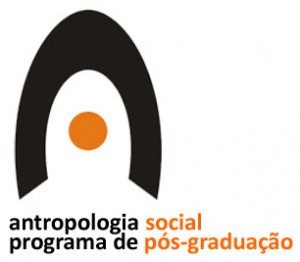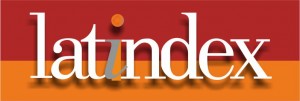Eleições e política no Sertão de Pernambuco, Brasil
O voto como forma de luta e mecanismo coletivo de inibição
DOI:
https://doi.org/10.52426/rau.v3i2.54Palavras-chave:
antropologia política, sertão, Pernambuco, voto, eleiçõesResumo
Este artigo pretende-se a sequência de uma série de trabalhos que põe em questão a eficácia da noção de “poder local”, de patronagem e de clientelismo para a compreensão da política partidária e eleitoral no Sertão de Pernambuco.
Referências
ABÉLÈS, Marc 2001. Un Ethnologue à l’Assemblée. Paris: Odile Jacob.
________ 2002. “Avoir du Pouvoir Politique”. In: Jeux de Familles, Ed. Martine Segalen. Paris: CNRS Editions.
ABENSOUR, Miguel 2004. La Démocratie contre l’État. Marx et le moment machiavélien. Paris: Felin.
ANSELL, Aaron 2010. “Auctioning Patronage in Northeast Brasil: the political value in a ritual market”. American Anthropologist 122/2.
ARETXAGA, Begoña 2000. “A Ficcional Reality; paramilitary death squads and the construction os state teror in Spain. In: Dead Squad: the Anthropology os State Terror, Ed. J.A. Sluka, PP. 46-69. Philadelphia: University of Pensilvannia Press.
BEZERRA, Marcos 1999. Em Nome das Bases: política, favor e dependência pessoal. Rio de Janeiro: Relume Dumará.
BURAWOY, M. & VERDERY, K. 1999. Uncertain Transition: ethnographies of change in the postsocialist World. New York: Rowan & Littlefield.
CLASTRES, Pierre. 1974. La Société Contre l’État. Paris: Minuit.
COMERFORD, John 2003. Como uma Família. Sociabilidade, territórios de parentesco e sindicalismo rural. Rio de Janeiro: Relume Dumará.
DELEUZE, G. & GUATTARI, F. Mille Plateux. Paris: Minuit.
FOUCAULT, Michel 2004. Sécurité, Territoire, Population. Cours au Collège de France, 1977-1978. Paris: Gallimard/Seuil.
HEGEL, G.W.F. 1975. La Société Civile Bourgeoise. Paris: Françoise Maspero.
FABIAN, Johannes 1983. Time and the Other. How Anthropology Makes its Objects. New York: Columbia University Press.
GAY, Robert 2001. “The Broker and the Thief: a parable (reflections on popular politics in Brazil”. Luso-Brazilian Review 36/1.
GEERTZ, Clifford 1963. The Integrative Revolution: primordial sentimentos and civil politics in the new states. In Old Societies and New States: the quest for modernity in Ásia and África, ed. Clifford Geertz, PP. 105-157. New York: Free Press.
GERSHIÈRE, Peter 1995. The Modernity od Wichtcraft. Politics and the occult in postcolonial África. Charlotteville: University of Virginia Press.
GOLDMAN, Marcio 2006. Como Funciona a Democracia. Uma teoria etnográfica da política. Rio de Janeiro: Sete Letras.
GREENFIELD, Sidney 2006. “Pilgrimage and Patronage in Brazil: a paradigm for social relations and religious diversity”. Luso-Brazilian Review 43/2.
JANKOWSKI, M. S. 1991. Islands in the Streets. Gangs and American urban society. Berkeley: University of Califórnia Press.
LEMIEUX, Vincent 1970. Le Patronage Politique dans l’île d’Orléans”. L’Homme, v. 10, n. 2.
MARQUES, Ana Claudia 2002. Intrigas e Questões. Tramas Sociais e Brigas de Família no Sertão de Pernambuco. Rio de Janeiro: Relume Dumará.
MARQUES, A. ; CHAVES, C. COMERFORD, J. 2007. Traições, Intrigas, Fofocas Vinganças: notas para uma abordagem etnográfica do conflito. In Conflitos, Política e Relações Pessoais. A. C. Marques ed. Campinas: Pontes.
MICHELUTTI, Lucia 2007. The Vernacularization of Democracy: political participation and popular politics in North Índia. Journal of the Royal Anthropological Institute (n.s.), 13.
PALEY, Julia 2002. “Towards an Atnhtropology of Democracy”. Annual Review of Anthropology.
PALMEIRA, Moacir 1992. Voto: racionalidade ou significado?. Revista Brasileira de Ciências Sociais, n. 20, ano 7.
________ 1996. Política, Facões e Voto. In Antropologia, Voto e Representação Política. Ed. M. Palmeira & M. Goldman, PP. 41-56. Rio de Janeiro: Contra Capa.
________ 1996a. Política Ambígua. In O Mal à Brasileira. PP. 159-184. Ed P.
BIRMAN; R. NOVAES, S. CRESPO. Rio de Janeiro: EDUERJ.
PALMEIRA, M. & GOLDMAN, M. 1992. “Apresentação”. In Antropologia, Voto e Representação Política. Ed. M. Palmeira & M. Goldman, PP. 1-14. Rio de Janeiro: Contra Capa.
________ 1992a. “Voto: racionalidade ou significado?”. Revista Brasileira de Ciências Sociais 20/7.
PALMEIRA, M. & HEREDIA, B. 1993. Le Temps de la Politique. Études Rurales, 131-132, jul-dec.
PIATTONI, Simona 2001. Clientelism, Interests, and Democratic Representation. The European experience in historical and comparative perspective. Cambridge: Cambridge University Press.
RIBEIRO, Florbela 2010. Florbela Almeida Ribeiro. Políticas Tenetehara e Tenetehara na política; um estudo sobre estratégias de uma campanha eleitoral direcionada a uma população indígena. Dissertação (Mestrado em Programa de Pós-Graduação em Antropologia Social) - Universidade de São Paulo
RONIGER, Luis 2004. “Political Clientelism, Democracy, and Market Economy”. Comparative Politics36/3.
SCHIMRMER, Jennifer 1998. The Guatemalan Military Project: a violence called democracy. Philadelphia: University of Pennsilvania Press.
SCOTT, James 1985. Waepons of the Week. Everuday forms of peasanr resistence. New Heaven: Yale University Press.
STENGERS, Isabelle 2002. A Invenção das Ciências Modernas. Rio de Janeiro: 34
TAYLOR, Julie 1993. The Outlaw State and the Lone Rangers. In Perilous State: conversations on culture, politics and nation, ed. G. Marcus, PP. 283-303. Chicago: Chicago University Press.
WEST, H. G. & KLOECK-JENSON, S.1999. Betwixt and Between: traditional authority and democratic decentralization in post-war mozanbique. African Affairs 98:455-484.
VEYNE, Paul Le Pain et Le Cirque. Sociologie historique d’un pluralisme politique. Paris: du Seuil.
________ 1984. Os Gregos Conheceram a Democracia?. Diógenes, 6.
VILLELA, Jorge 2005. O Dinheiro e suas Diversas Faces nas Eleições Municipais no Sertão de Pernambuco. Mana. 11.1
________ 2006. Municipal Elections: favor, vote and credit in the Pernambucan Sertão of Brazil. The Latin Americanist. 49, 2.
________ 2008. Política e Eleições no Sertão de Pernabuco. O povo em armas. Campinas: Pontes.
Downloads
Publicado
Como Citar
Edição
Seção
Licença
Copyright (c) 2021 Revista de Antropologia da UFSCar

Este trabalho está licenciado sob uma licença Creative Commons Attribution-ShareAlike 4.0 International License.





